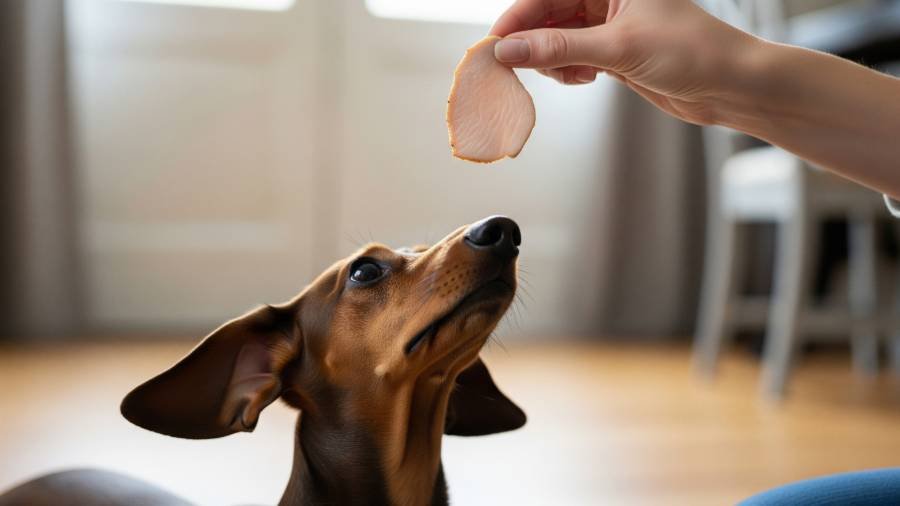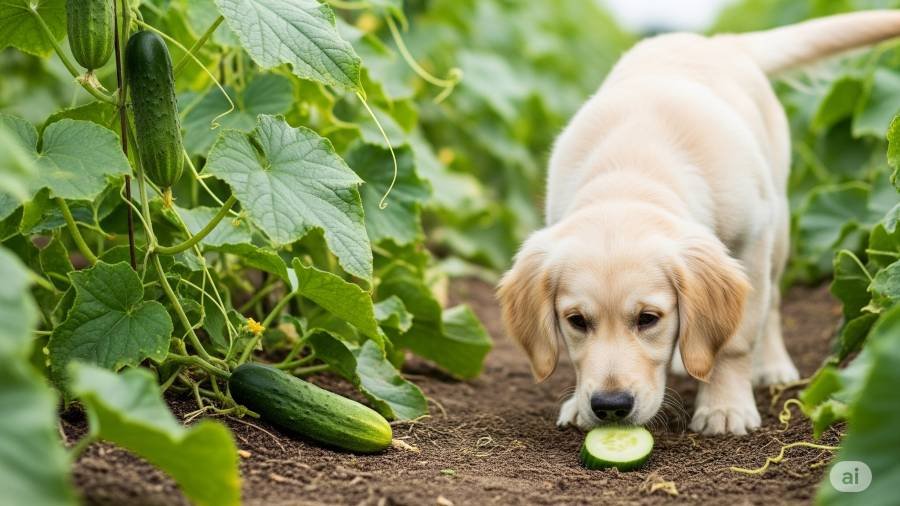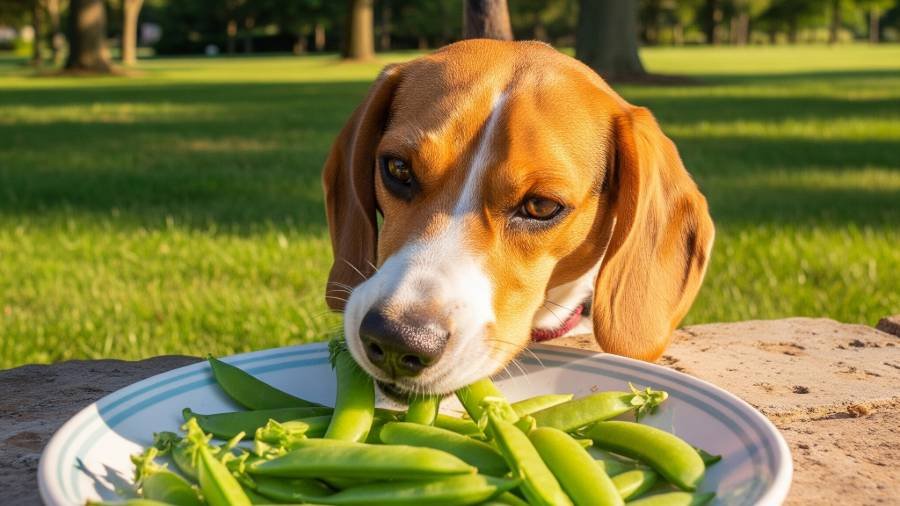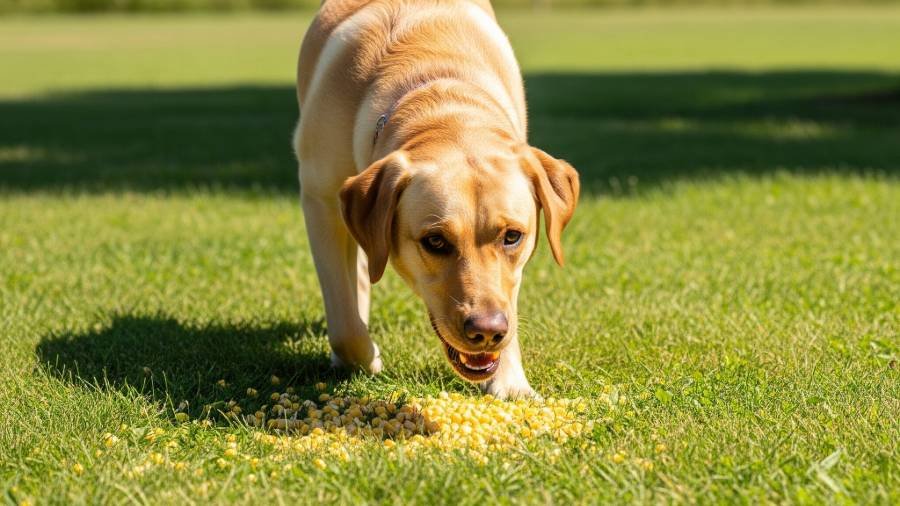Yes, dogs can eat turkey in small portions as a healthy and protein-rich treat when prepared properly, making turkey good for dogs if done right.
This article offers a unique, detailed guide on feeding your dog turkey, exploring its benefits, potential risks, and safe practices.

Potential Benefits of Turkey for Dogs
When dogs can eat turkey meat in controlled amounts, it provides several advantages that enrich a dog’s diet:
- High-Quality Protein: Turkey, especially white meat, offers lean protein, supporting muscle growth and repair, ideal for active dogs.
- Low Fat Option: Plain, skinless turkey meat has a lower high fat content compared to other meats, aiding weight management.
- Essential Nutrients: It contains B vitamins and minerals like phosphorus, promoting energy and bone health.
- Palatability: The mild flavor of turkey meat makes it an appealing dog treat, encouraging picky eaters to enjoy meal times.
- Hydration Support: Cooked turkeys prepared without heavy sauces can retain moisture, contributing to a dog’s hydration.
These benefits make turkey a nutritious choice when you feed your dog turkey in small portions, complementing their daily caloric intake. For more on safe proteins, explore can dogs eat sardines.
Risks and Dangers of Turkey for Dogs
While turkey is generally safe, certain risks arise if not prepared or fed correctly:
- High Fat Content: Turkey skin or dark meat can lead to pancreatitis or obesity, especially if a dog eats turkey skin regularly.
- Turkey Bones: Cooked turkey bones can splinter, posing a choking hazard or causing internal injuries.
- Garlic and Onion: Seasonings like garlic and onion in cooked turkeys are toxic to dogs, potentially causing severe health issues.
- Sodium Overload: Turkey bacon or processed turkey may have high sodium content, risking salt poisoning in large amounts.
- Allergic Reactions: Though rare, some dogs may experience itching or digestive upset as an allergic response to turkey.
- Bacterial Contamination: Raw or undercooked turkey meat can harbor salmonella or other bacteria, harmful to dogs.
How to Safely Feed Turkey to Dogs
To ensure turkey is a safe treat, follow these guidelines when you feed your dog turkey:
- Use Plain Turkey: Offer only unseasoned, skinless turkey meat, avoiding garlic and onion or other spices.
- Cook Thoroughly: Prepare turkey by baking or boiling to eliminate bacteria, ensuring it’s fully cooked without added fats.
- Cut into Bite Size Pieces: Chop pieces of turkey into small, manageable portions, especially for puppies or small dogs, to prevent choking.
- Avoid Turkey Bones: Never give cooked turkey bones; opt for boneless cuts to eliminate splintering risks.
- Feed in Small Amounts: Provide a small amount (e.g., 1-2 tablespoons for small dogs, up to ¼ cup for large dogs) once or twice a week, keeping it under 10% of daily caloric intake.
- Monitor Reactions: Introduce turkey gradually and watch for digestive issues or allergies over 24-48 hours. Consult a vet if problems arise.
- Consult a Vet: Seek veterinary advice before adding turkey, especially for dogs with pancreatitis or food sensitivities.
Signs of Turkey-Related Issues
If a dog eats turkey improperly or reacts poorly, look for these warning signs:
- Vomiting, diarrhea, or reduced appetite (possible gastrointestinal distress from fat or seasoning)
- Difficulty breathing or choking (from turkey bones or large pieces)
- Lethargy, tremors, or seizures (indicators of sodium poisoning or toxin ingestion)
- Excessive scratching or swelling (rare allergic reactions)
- Abdominal pain or bloating (pancreatitis or digestive overload)
If these signs appear, stop feeding turkey and contact a veterinarian immediately. Severe cases may require urgent care.
Expert Opinions
Veterinary experts, including the American Kennel Club (AKC) and the Pet Poison Helpline, endorse plain, cooked turkey as a safe treat for dogs in moderation, highlighting its protein and low-fat benefits when turkey good for dogs is prepared correctly.
They caution against bones, seasonings, and excessive fat, recommending vet consultation for dietary inclusion.
Additional Considerations
- Health Conditions: Dogs with pancreatitis or kidney issues should avoid fatty turkey. Consult a vet first.
- Puppies: Young dogs need smaller pieces and monitoring to prevent choking.
- Dog Preferences: Many dogs enjoy turkey’s taste, but overfeeding can lead to issues. Adjust portions accordingly.
- Holiday Safety: During cooked turkeys season, secure leftovers to prevent dogs from eating turkey skin or bones.
- Storage: Refrigerate cooked turkey and use within 3-4 days to maintain safety.
Safe Treat Alternatives
Instead of relying solely on turkey, consider these safe-for-dogs treats, tailored to enhance a dog’s diet:
- Cooked Eggs: Plain hard boiled eggs, scrambled eggs provide protein.
- Cooked Broccoli: A small portion of steamed broccoli offers vitamins.
- Apples: A few chopped apple pieces supply fiber.
- Plain Pumpkin: A teaspoon of plain pumpkin aids digestion.
Introduce new treats gradually, monitor for reactions, and consult a vet to ensure a balanced diet.
Dogs can eat turkey as a safe, protein-rich treat when fed in small portions of plain, cooked, boneless turkey meat, offering benefits like muscle support and low high fat content when prepared without garlic and onion or turkey bones.
However, risks such as choking hazard from bones, digestive upset from high fat content, or toxicity from seasonings require careful preparation and moderation.
Puppies or dogs with health issues like pancreatitis should limit turkey unless approved by a vet, and a balanced diet should remain the foundation.
Always consult a veterinarian before feeding your dog turkey, and consider safe alternatives for variety.
For more on canine nutrition, explore can dogs eat ham or what vegetables can dogs eat.
For additional questions about what dogs can eat or dietary concerns, feel free to ask!





